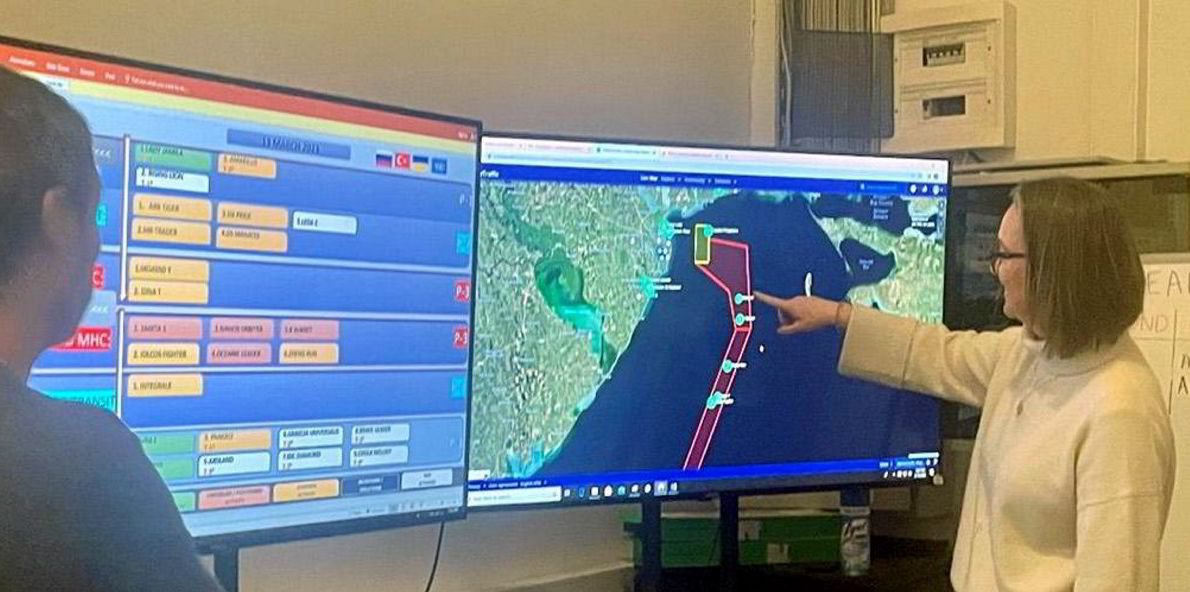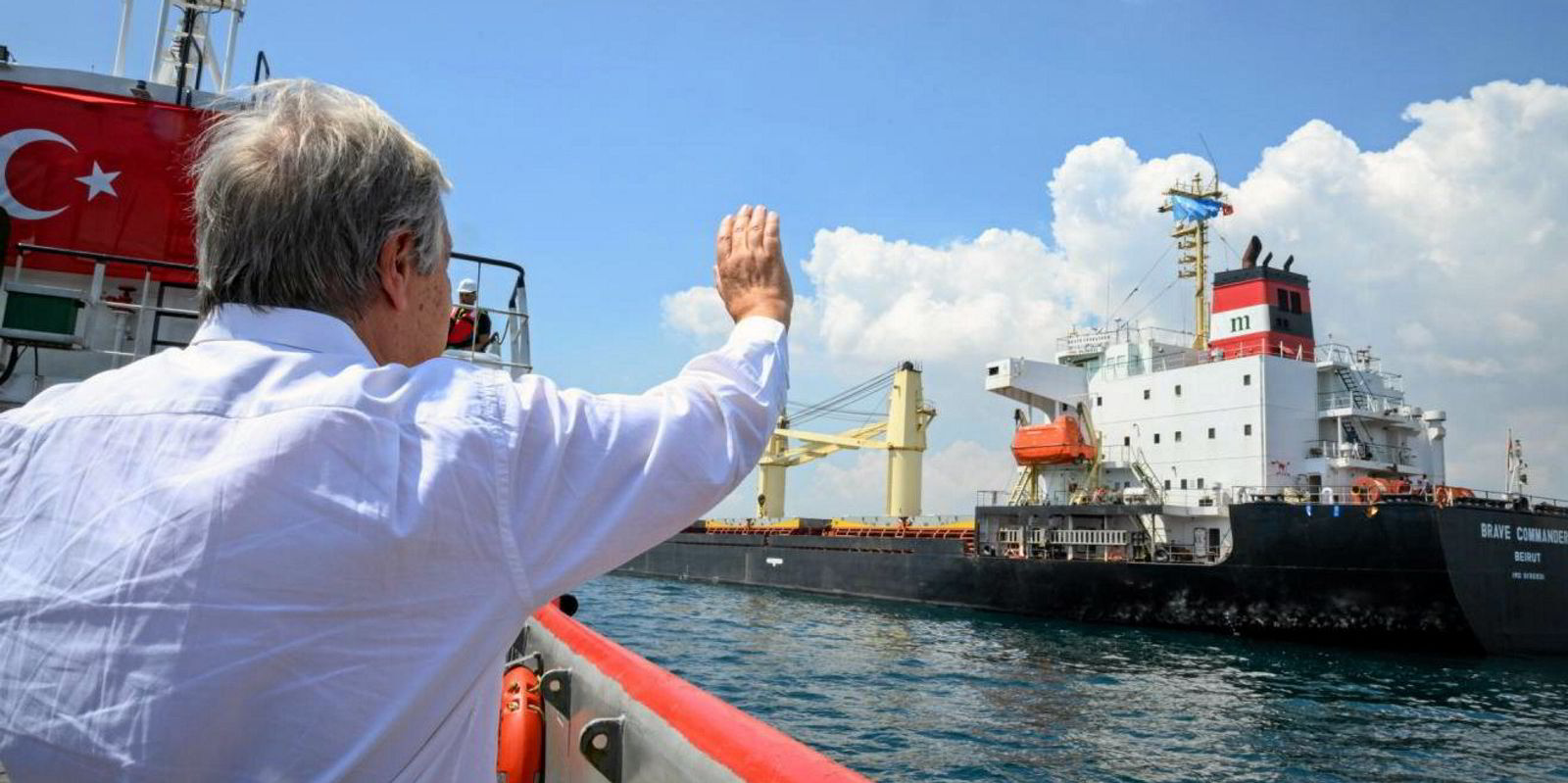The United Nations-led corridor allowing the export of grains and other foodstuff out of war-torn Ukraine has been extended for two months.
The announcement was made on Wednesday by Recep Tayyip Erdogan, president of Turkey, who helped negotiate the deal.
The Black Sea Grain Initiative (BSGI), under which nearly 30m tonnes of cargo have left three Ukrainian ports since last August, had in effect been suspended since early May over Russian objections to continuing the scheme.
Moscow has been pushing Western governments to lift economic and other sanctions to allow the unhindered, parallel export of its own grain, ammonia and fertiliser — as was originally envisaged when the BSGI got up and running.
Russian officials confirmed the extension, but they signalled that they are still unhappy with the way the deal works.
“Our fundamental assessments … have not changed, and the distortions in [the initiative’s] implementation should be corrected as quickly as possible,” foreign ministry spokeswoman Maria Zakharova said.
A UN spokesman said that talks continue to satisfy Russian demands, particularly to facilitate Russian exports of ammonia.
“Outstanding issues remain… but representatives of Russia, Ukraine, Turkey and the United Nations will keep discussing them,” the spokesman said.
The UN spokesman expressed the hope that Russian food and fertilizers, including ammonia “will be able to reach global supply chains safely and predictably — as foreseen in both the Black Sea Initiative and the Memorandum of Understanding on Russian food and fertilizer exports — the implementation of which the United Nations is fully committed to support.”
Russian obstruction had blocked the BSGI even before it was formally due to expire on 18 May.
Even though outbound vessels continued to leave Ukraine as of 17 May, inbound movements through the initiative’s Joint Coordination Centre in Istanbul had trickled to a halt as early as 6 May.
Russian inspectors had been declining authorisation and registration of new incoming ships since 4 May, according to Ukrainian port data.
Ukrainian infrastructure minister Oleksandr Kubrakov urged the UN on Wednesday to make sure there will be no more Russian foot-dragging.
“The BSGI has been unblocked [and] continues to be valid till 18 July as signed before,” Kubrakov tweeted, adding: “Main challenge now is to make BSGI efficient by cancellation [of] artificial barriers.”
Erdogan did not elaborate on what led the Kremlin to change its mind and agree to extend the scheme.
However, it is conceivable that Russian president Vladimir Putin did not want to deprive Erdogan, a potential ally, of a diplomatic victory before 28 May — the day the Turkish president hopes to secure another term in elections.
About 600,000 tonnes of foodstuffs transported under the BSGI have been for UN World Food Programme humanitarian operations in Afghanistan, Ethiopia, Kenya, Somalia and Yemen.
Handysize and supramax bulkers mostly controlled by Greek, Turkish and Lebanese interests have benefitted greatly from the scheme.





